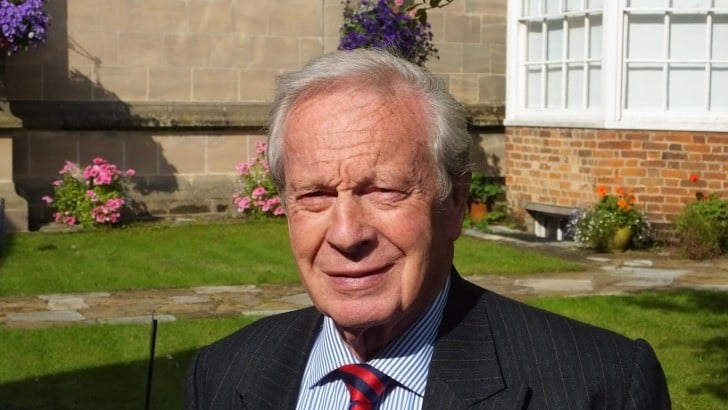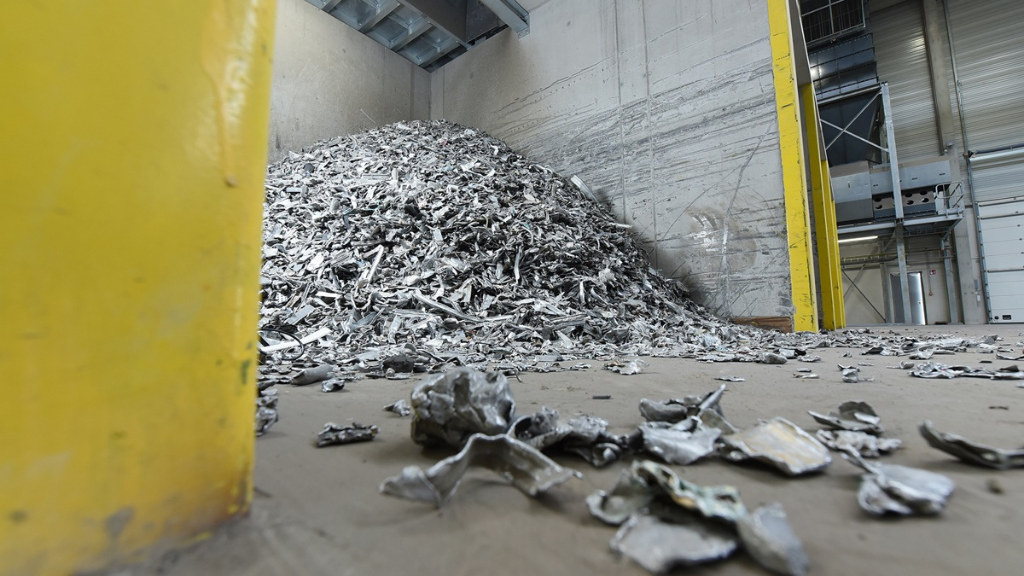Recycling industry leader urges UK to declassify all grades of processed scrap after Brexit
Former BIR executive reminds industry that scrap is not waste

One of the world's senior figures in the recycling of ferrous and non-ferrous metals is urging the British Government to rethink the classification of all grades of processed scrap as waste post-Brexit and instead recognise them as a valuable raw material. He says that classifying them as waste is costing the British recycling industry millions of pounds a year and is creating serious problems for exporting.
Tony Bird OBE (shown here) told the British Metals Recycling Association he was dismayed when secretary of state Michael Gove admitted in Parliament that he had no idea what effect the Chinese Government's ban on imports of waste was having on the British recycling industry.
Mr Bird, a former President of BIR, and an adviser to UK governments and the EU commission, was addressing the BMRA annual dinner in London at which he received a Lifetime Achievement Award.
He said:"Michael Gove's statement was very worrying coming from someone with ultimate power over our recycling activities. We must make sure that he is now fully briefed on this important British industry. The most pressing task we have, as an industry, is to get rid of the word "waste" for all our processed products.
"I agree that a certain amount of the materials which we process in our plants are waste when they arrive. But when they leave, after costly processing, they are ready for use as furnace feed and are a raw material not waste."
He said the word was pernicious and brought down on the industry additional costs and unjustified environmental regulations. It also created problems at frontiers when exporting.
"I realise the BMRA Secretariat has a close relationship with the government departments controlling environmental and industrial matters. We now need even closer relations with these relevant Government departments as Brexit grows closer."
He urged the BMRA secretariat to put its Brexit requirements firmly on the table and the first of those should be to remove all finished grades of scrap from the waste category.
"We need not worry about our industry's trading position whatever the Brexit result is. We are natural free traders and entrepreneurs and no strangers to international trading. We should all remember that this great British Association (the BMRA) and all the overseas Federations were formed due to the threat of export controls with one basic objective - to ensure that as recyclers and traders we are allowed to trade our products anywhere in the world, freely across frontiers, without hindrance.
"Ninety per cent of the £8 billion in metals we recover and recycle annually are exported. We recover the nation's metallic waste converting it into over 10 million tonnes of furnace feed."
Turning to the environment he summed up: "We are, as an industry, an enormous asset to the environment - yet our contribution to it is widely under-rated. One tonne of steel made from iron ore causes over 80 per cent more pollution in air and water than one tonne of new steel produced from our recycled ferrous scrap. The figures in non-ferrous metals are very similar."
Mr Bird was presented with his Lifetime Achievement Award by Ms Susie Burrage, the president of the BMRA. He was described by Michael Lion, of Lion Consulting Asia Ltd, as the man who had done more than any other to transform the ‘Steptoe' image of scrap metal yards into a global high technology sector that responsibly nurtured the scarce resources of the planet. Mr Lion is a leading world authority on non-ferrous metals. He flew from Hong Kong to be present for the award.


